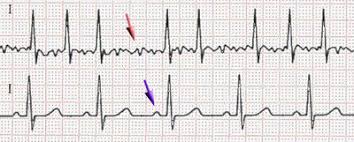Author Interviews, Brigham & Women's - Harvard, Genetic Research, Hearing Loss, Lancet, Pediatrics / 29.01.2024
Gene Therapy Restores Hearing In Trial of Autosomal Recessive Pediatric Deafness
MedicalResearch.com Interview with:
Zheng-Yi Chen, D.Phil.
Department of Otolaryngology-Head and Neck Surger
Harvard Medical School
Boston, MA
MedicalResearch.com: What is the background for this study? Would you briefly explain the process and indication
Response: This clinical trial is to use gene therapy to treat a type of genetic hearing loss. Genetic hearing loss mainly affects children. One in 600 newborns can have genetic hearing loss. There is no drug treatment for any type of hearing loss except for cochlear implants, which have limitations. This study focuses on a type of genetic hearing loss, DFNB9, due to a missing gene called Otoferlin. Without Otoferlin, children are born with complete hearing loss and without the capacity to speak. The goal of the trial is to study if gene therapy is safe and efficacious in treating children so they can regain hearing and the ability to speak.
(more…)




























